- Home
- Quizzes
- My Quiz Activity
- Newsletters
- Sports Betting
- MY FAVORITES
- Add Sports/Teams
- SPORTS
-
NFL
- NFL Home
- Arizona Cardinals
- Atlanta Falcons
- Baltimore Ravens
- Buffalo Bills
- Carolina Panthers
- Chicago Bears
- Cincinnati Bengals
- Cleveland Browns
- Dallas Cowboys
- Denver Broncos
- Detroit Lions
- Green Bay Packers
- Houston Texans
- Indianapolis Colts
- Jacksonville Jaguars
- Kansas City Chiefs
- Las Vegas Raiders
- Los Angeles Chargers
- Los Angeles Rams
- Miami Dolphins
- Minnesota Vikings
- New England Patriots
- New Orleans Saints
- New York Jets
- New York Giants
- Philadelphia Eagles
- Pittsburgh Steelers
- San Francisco 49ers
- Seattle Seahawks
- Tampa Bay Buccaneers
- Tennessee Titans
- Washington Commanders
-
MLB
- MLB Home
- Arizona Diamondbacks
- Atlanta Braves
- Baltimore Orioles
- Boston Red Sox
- Chicago White Sox
- Chicago Cubs
- Cincinnati Reds
- Cleveland Guardians
- Colorado Rockies
- Detroit Tigers
- Houston Astros
- Kansas City Royals
- Los Angeles Angels
- Los Angeles Dodgers
- Miami Marlins
- Milwaukee Brewers
- Minnesota Twins
- New York Yankees
- New York Mets
- Oakland Athletics
- Philadelphia Phillies
- Pittsburgh Pirates
- San Diego Padres
- San Francisco Giants
- Seattle Mariners
- St. Louis Cardinals
- Tampa Bay Rays
- Texas Rangers
- Toronto Blue Jays
- Washington Nationals
-
NBA
- NBA Home
- Atlanta Hawks
- Boston Celtics
- Brooklyn Nets
- Charlotte Hornets
- Chicago Bulls
- Cleveland Cavaliers
- Dallas Mavericks
- Denver Nuggets
- Detroit Pistons
- Golden State Warriors
- Houston Rockets
- Indiana Pacers
- Los Angeles Clippers
- Los Angeles Lakers
- Memphis Grizzlies
- Miami Heat
- Milwaukee Bucks
- Minnesota Timberwolves
- New Orleans Pelicans
- New York Knicks
- Oklahoma City Thunder
- Orlando Magic
- Philadelphia 76ers
- Phoenix Suns
- Portland Trail Blazers
- Sacramento Kings
- San Antonio Spurs
- Toronto Raptors
- Utah Jazz
- Washington Wizards
-
NHL
- NHL Home
- Anaheim Ducks
- Boston Bruins
- Buffalo Sabres
- Calgary Flames
- Carolina Hurricanes
- Chicago Blackhawks
- Colorado Avalanche
- Columbus Blue Jackets
- Dallas Stars
- Detroit Red Wings
- Edmonton Oilers
- Florida Panthers
- Los Angeles Kings
- Minnesota Wild
- Montreal Canadiens
- Nashville Predators
- New Jersey Devils
- New York Islanders
- New York Rangers
- Ottawa Senators
- Philadelphia Flyers
- Pittsburgh Penguins
- San Jose Sharks
- Seattle Kraken
- St. Louis Blues
- Tampa Bay Lightning
- Toronto Maple Leafs
- Utah Hockey Club
- Vancouver Canucks
- Vegas Golden Knights
- Washington Capitals
- Winnipeg Jets
- NCAAF
- NCAAM
- Olympics
- Boxing
- Entertainment
- Lifestyle
- Golf
- MMA
- Soccer
- Tennis
- Wrestling
- More Sports
- RESOURCES
- My Account
- YB on Facebook
- YB on Twitter
- YB on Flipboard
- Contact Us
- Privacy Policy
- Terms of Service
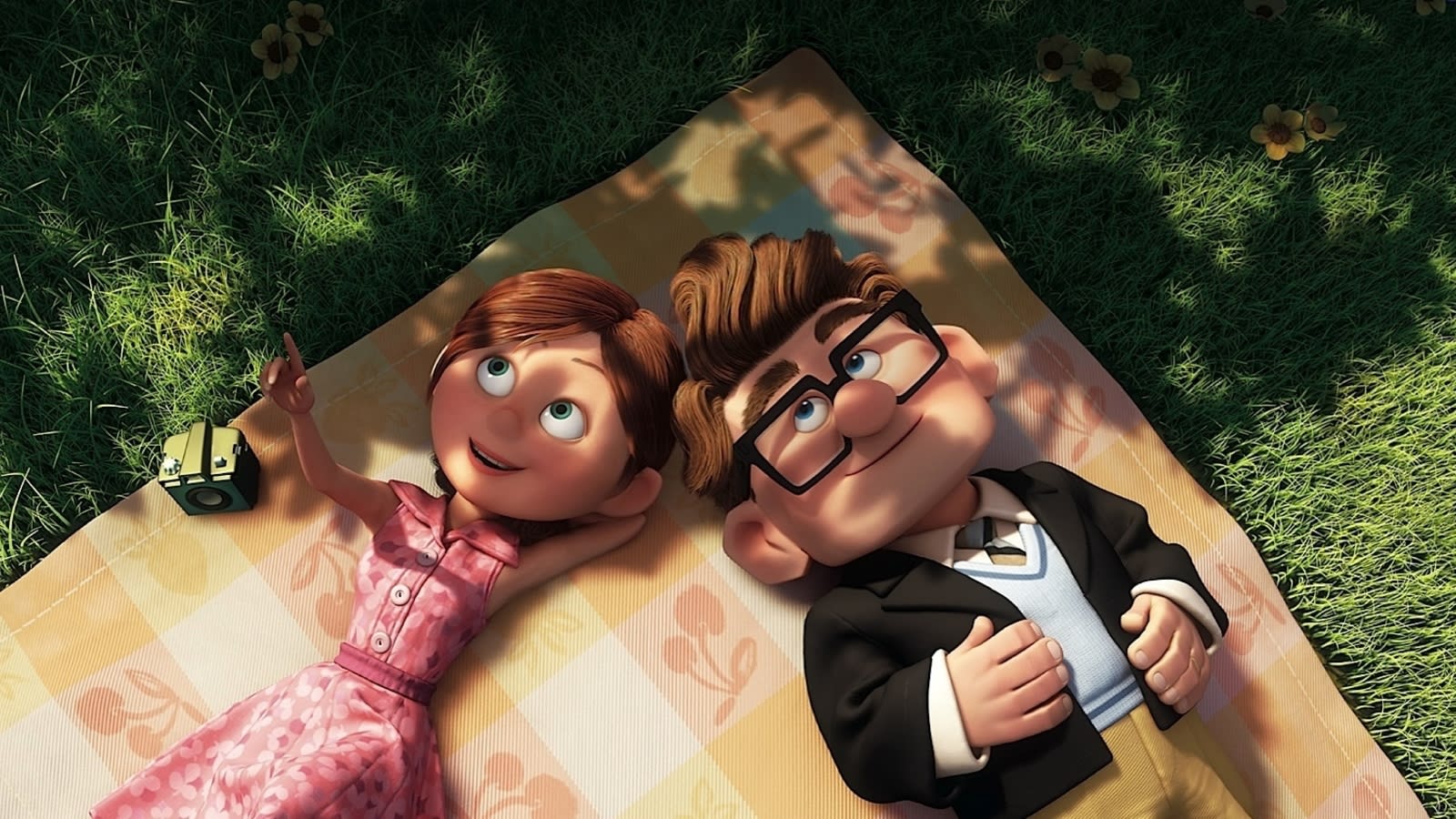
The 20 most emotionally resonant animated movies
For far too long, animation has been viewed as inferior to live-action, largely because it remains associated with children and their supposedly simple needs and desires as viewers. Over the years, however, studios from Disney to Pixar to Studio Ghibli have shown that there is a lot of emotional power in animation, which has the power to take the viewer out of their everyday world and into one of magic and beauty and utopia. What’s more, the very best animated movies are those that explore emotions and feelings, which leave a lasting impression on the viewer, becoming film classics in their own right.
'The Iron Giant'
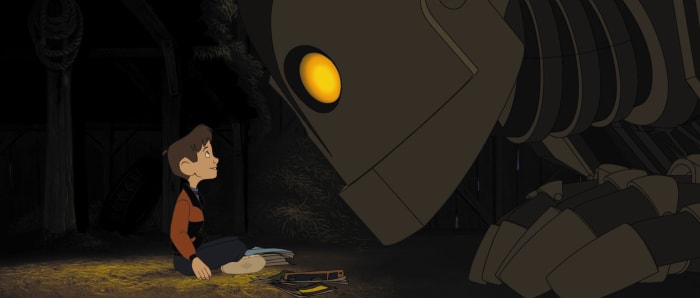
There’s always something magical about a story focusing on a boy and his bond with another creature, whether a dog, an alien, or, as in the case of The Iron Giant, a giant robot from outer space. Though this film might not have been a huge success when it was first released, it has become beloved precisely because of the heartwarming bond between the boy, Hogarth, and the Iron Giant.
'Finding Nemo'

Throughout its history, Pixar has shown an ability to create characters and storylines that really tug on the viewer’s heartstrings. Finding Nemo, for example, focuses on a father clownfish, Marlin, who sets out to rescue his son, Nemo. The film is gorgeously animated — capturing the beauty of the ocean around Australia — but the father/son dynamic sets the film apart. There is likewise something endearing and, at times, even sad about the character of Dory, whose memory problems have caused her no small amount of trouble and heartache.
'The Hunchback of Notre Dame'
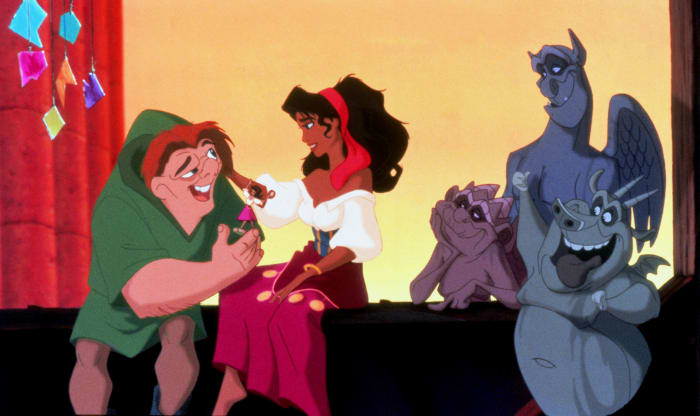
Even though it didn’t hit quite the heights — either critically or commercially — as some of the other entries in the Disney Renaissance, there’s no doubt in hindsight that The Hunchback of Notre Dame marked a true accomplishment for the studio. It’s sweeping, beautiful, and artistically and emotionally mature, addressing themes almost no other Disney film would touch. It’s also a reminder of the importance of accepting difference rather than using it as an excuse to subjugate and denigrate others. It’s a film that remains as hauntingly beautiful and moving as it was when it was released in 1996.
'Toy Story 3'
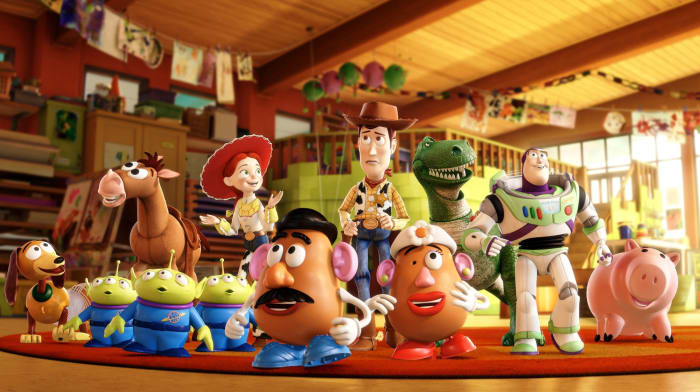
Not every franchise can grow and mature with each installment, but such is the case with Toy Story. This entry deals with the fact that Andy has grown up, so Woody, Buzz, and the other toys have to figure out what to do with themselves. This type of film touches the heart, particularly since most people have had to say goodbye to some beloved aspect of their lives, whether it’s a loved one, a treasured pet, or a toy they’ve had since childhood. There’s a universality to Toy Story 3 that establishes it as yet another remarkable piece of animated storytelling.
'WALL-E'

It’s not every studio that could take a movie about a trash-collecting robot with minimal dialogue and turn it into a touching and thought-provoking exploration of humanity and its relation to Earth, but Pixar somehow manages to do it. WALL-E is visually beautiful to watch and moving. The little robot is arguably one of the studio’s most beloved and enjoyable characters because he has a heart of gold. The fact that he manages to bring humans back to Earth and has a romance with a little female robot gives the film a little bit of joy.
'Charlotte’s Web'

For children of the 1970s and 1980s, Charlotte’s Web is beautiful and deeply scarring. Based on the novel by E.B. White, it focuses on the pig, Wilbur, who is saved from slaughter thanks to the work of the benevolent spider, Charlotte. Despite its chipper songs and overall happy tone, the film does have some notably sad moments, particularly when Charlotte eventually dies. It’s a good example of how a children’s film can teach its young audiences how to cope with weighty issues like grief and the passing of a loved one.
'Coco'

The last decade and a half has seen a remarkable and positive shift in animation to focus on cultural traditions other than those in the United States. In 2017, for example, viewers were treated to the beauty of Coco, which focuses on Miguel, a Mexican boy who finds himself transported to the Land of the Dead and has to find his way back while also discovering secrets about his family. The film hits just the right balance between joy and sorrow, laughter and tears, with a story that is sure to touch anyone who has ever had to deal with loss.
'An American Tail'

After leaving Disney, Don Bluth became a powerhouse in animation throughout the 1980s, and An American Tail is arguably one of his best efforts. Its story of the young mouse Fievel Mousekewitz and his family is obviously an allegory for the Jewish immigrant experience, and this helps to ground the animation in real-world emotions and issues. What’s more, the moment when the little mouse is finally reunited with his family after being separated from them speaks to the power of family and finding a new home.
'The Last Unicorn'

Based on the novel of the same name by Peter S. Beagle, The Last Unicorn focuses on the title character (voiced by Mia Farrow) as she sets out on a perilous journey to find out what happened to the rest of her kind. She meets several companions along the way but, unfortunately, she also spends some time as a human. She thus learns what it is to regret, and though she does save her kind, she remains forever marked by her experience. Elegiac and melancholic, The Last Unicorn retains its moving power even after four decades.
'The Plague Dogs'

The 1980s was a truly remarkable decade for animation, particularly for studios that weren’t named Disney. The Plague Dogs, for example, is unlike almost any other film of the period, focusing on a pair of dogs, Snitter and Rowf, who escape from a lab only to find themselves relentlessly pursued by humans. The animation is starkly beautiful, but the story resonates, partly thanks to its almost unrelenting bleakness. Plague Dogs shows the extent to which animation can be used to tell stories that are just as mature and sophisticated as those seen in live-action.
'Grave of the Fireflies'
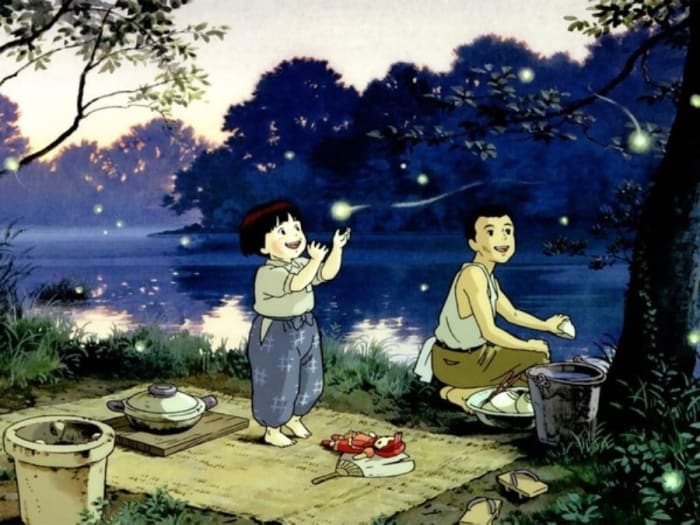
Few animated films are quite as devastating as Grave of the Fireflies. The film focuses on two siblings, Seita and Setsuko, who grapple with the horrors of war and strife in Japan as World War II draws to a close. The film is certainly not for the faint of heart, and it shines a haunting light on children's experiences in times of war. Even though Studio Ghibli is responsible for many great works of animation, it has to be said that this one stands head and shoulders above the rest.
'The Land Before Time'

Unlike Disney, which struggled in the 1980s, ex-Disneyite Don Bluth had a remarkably successful decade. One of his best films in that period is The Land Before Time, which focuses on a group of young dinosaurs — led by the longneck Littlefoot — who attempt to find their way to a fertile place known as the Great Valley. It’s a film filled with heartbreak and joy in equal measure, and it isn’t afraid to deal with heavy issues like death and grief. Moreover, it is anchored by beautiful animation — a testament to Bluth’s talent as a director and animator.
'Encanto'

One of the best things about recent Disney films is how the studio has sought to branch out and embrace numerous cultural traditions. Encanto, for example, drew extensively on Colombia life and culture in its depiction of the Madrigal family and their magic. The story's real heart is Maribel (voiced by Stephanie Beatriz), who struggles with her lack of magical gifts. Beautifully animated and with its heart on its sleeve, Encanto has more than a little of the old Disney magic.
'Turning Red'
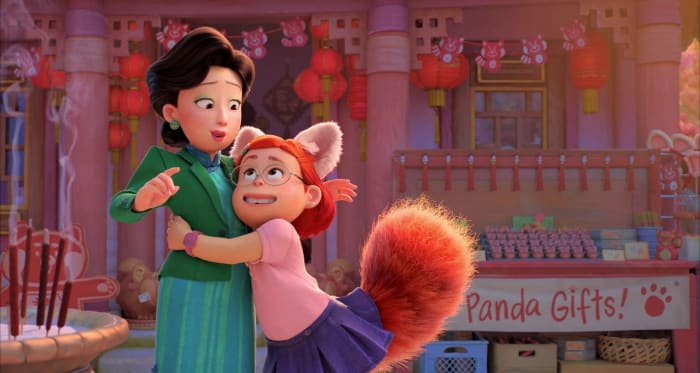
Turning Red is yet another heartwarming picture from Pixar. This movie focuses on a young Canadian girl named Mei Lee whose transition into adolescence means she starts turning into a giant red panda. The film expertly uses this central metaphor to explore issues of cultural diversity, the perils of youth, and the importance of individuality and creativity. The relationship between Mei and her overprotective mother, Ming Lee, gives this film its powerful and evocative appeal to audiences of all persuasions.
'Up'

Pixar has long had the gift of finding the true heart and soul of a story and its characters, and few of their films illustrate this as movingly as Up. On one level, the film is an action-adventure story about the boy Russell, the grieving widower Carl, and the dog, Doug. On another level, though, it’s about finding unexpected connections. Moreover, its first few moments are arguably some of the most heartbreaking in the history of the animated movie, as Carl says goodbye to his beloved wife, Ellie, after a happy life spent together.
'Inside Out'
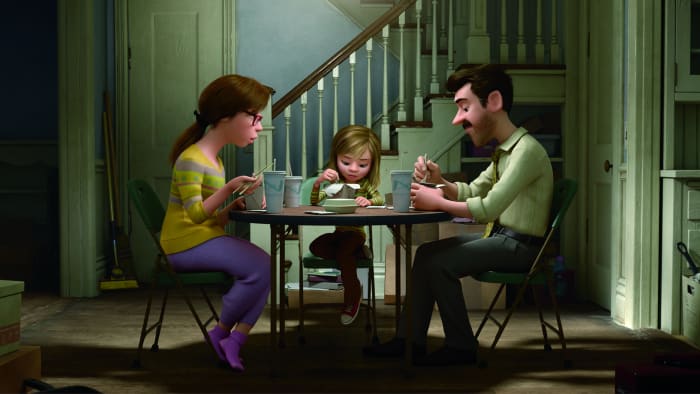
In Inside Out, Pixar turned its attention to the workings of the human mind, and much of the story focuses on the personified emotions of Riley, a little girl. In particular, the story revolves around Amy Poehler’s Joy and Phyllis Smith’s Sadness, who must work together. Though there are many moments of happiness and laughter, given that the film is all about the importance of balancing different emotions, it also has its fair share of heartbreak, which gives it its unique power.
'The Boy, The Mole, The Fox and the Horse'

The short film The Boy, The Mole, The Fox and the Horse is a lovely gem of a film that tells the story of a young boy who encounters the various creatures of the title. Though the Boy begins by wanting to return home, he soon discovers that there are many different ways of finding belonging. In addition to having its unique style — which is evocative of the book on which the movie is based — it’s also a remarkably simple story, and in its simplicity lies its power. Thus, it won the Best Animated Short Film at the Oscars.
'The Fox and the Hound'
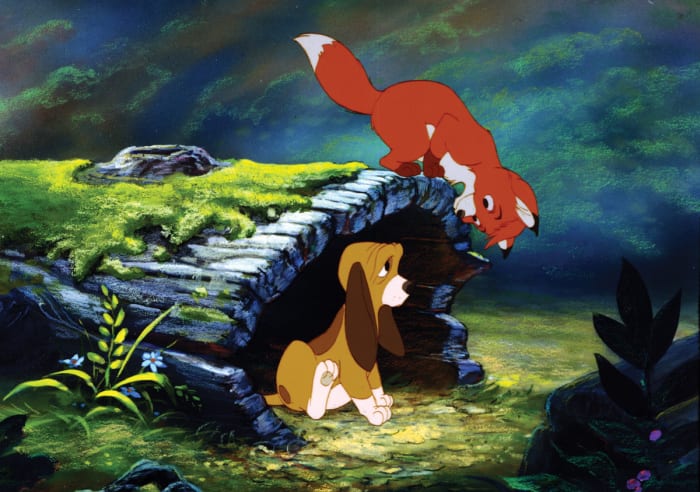
The Fox and the Hound is arguably Disney's saddest film ever released. As its title implies, it focuses on the unlikely friendship that emerges between the fox, Todd, and the hound, Copper. Gradually, the prejudices of the world around them tear them apart, and the film ends on a mostly happy but bittersweet moment. It was a bit of a risk for the studio, but its emotional maturity makes it one of the standout films of the underwhelming 1980s. It certainly left an impression on many millennials and Gen Xers, for whom the film remains a generational touchstone.
'The Prince of Egypt'

While DreamWorks has never quite achieved the same level of cultural ubiquity as Disney, the studio has released truly magnificent animated features. The Prince of Egypt remains the high water mark for its artistic achievement, telling the story of Moses with a grandeur as emotionally moving as it is beautiful to behold. With stirring songs and striking — and at times haunting — visuals, the film is a testament to the enduring power of animation and of the Exodus story from the Old Testament.
'Luca'

Pixar has long had a knack for telling emotionally resonant stories that may be specific to the director in charge but also have wider applicability. Luca, for example, draws on the experiences of its director, Enrico Casarosa, while also using the friendship between its two main characters, Luca and Alberto, to tell a remarkably sophisticated story about the bonds of boyhood and the perils and promise of being different. And, of course, it does all of this while also showcasing the studios’ remarkable visual artistry.
Thomas J. West III earned a PhD in film and screen studies from Syracuse University in 2018. His writing on film and TV has appeared at Screen Rant, Screenology, FanFare, Primetimer, Cinemania, and in a number of scholarly journals and edited collections. He co-hosts the Queens of the B's podcast and writes a regular newsletter, Omnivorous, on Substack. He is also an active member of GALECA, the Society of LGBTQ Entertainment Critics.
More must-reads:
- 20 films that went the extra mile to be scientifically sound
- Cam Newton is a perfect fit for ESPN's 'First Take'
- 20 superhero flicks for people who can't stand superhero flicks
Trending in Entertainment
Customize Your Newsletter
 +
+
Get the latest news and rumors, customized to your favorite sports and teams. Emailed daily. Always free!
Use of this website (including any and all parts and
components) constitutes your acceptance of these
Terms of Service and Privacy Policy.
This site is for entertainment purposes only.
There is no gambling offered on this site.
Gambling Problem? Call 1-800-Gambler.
